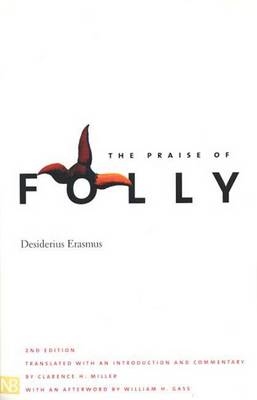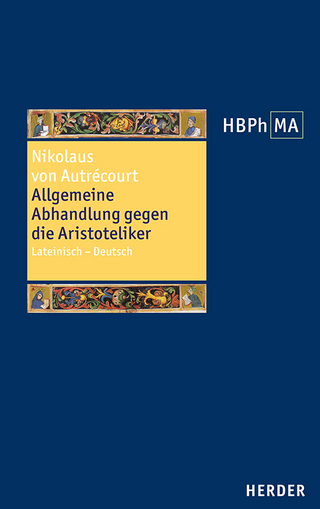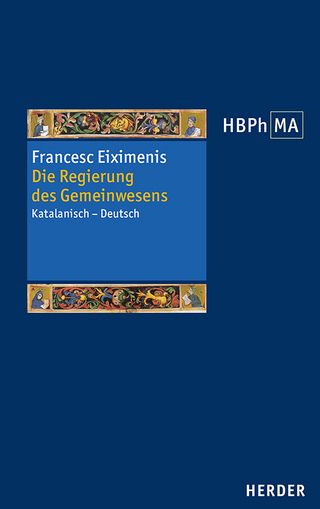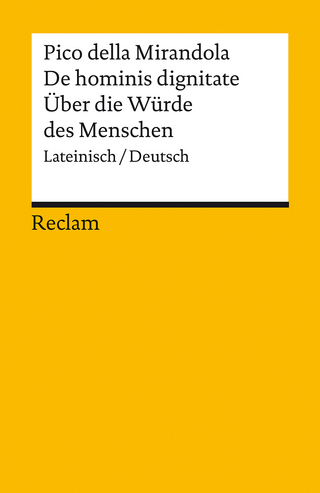
The Praise of Folly
Seiten
2003
|
2nd Revised edition
Yale University Press (Verlag)
978-0-300-09734-4 (ISBN)
Yale University Press (Verlag)
978-0-300-09734-4 (ISBN)
Clarence H. Miller's translation of "The Praise of Folly", based on the definitive Latin text, seeks to echo Erasmus' own lively style while retaining the nuances of the original text. In his introduction, Miller places the work in the context of Erasmus as humanist and theologian.
First published in Paris in 1511, The Praise of Folly hasenjoyed enormous and highly controversial success from the author’s lifetime down to our own day.It hasno rival, except perhaps Thomas More’s Utopia, as the most intense and lively presentation of the literary, social, and theological aims and methods of Northern Humanism. Clarence H. Miller’s highly praised translation of The Praise of Folly, based on the definitive Latin text, echoes Erasmus’ own lively style while retaining the nuances of the original text. In his introduction, Miller places the work in the context of Erasmus as humanist and theologian. In a new afterword, William H. Gass playfully considers the meaning, or meanings, of folly and offers fresh insights into one of the great books of Western literature.
Praise for the earlier edition:
“An eminently reliable and fully annotated edition based on the Latin text.”—Library Journal
“Exciting and brilliant, this is likely to be the definitive translation of The Praise of Folly intoEnglish.”—Richard J. Schoeck
First published in Paris in 1511, The Praise of Folly hasenjoyed enormous and highly controversial success from the author’s lifetime down to our own day.It hasno rival, except perhaps Thomas More’s Utopia, as the most intense and lively presentation of the literary, social, and theological aims and methods of Northern Humanism. Clarence H. Miller’s highly praised translation of The Praise of Folly, based on the definitive Latin text, echoes Erasmus’ own lively style while retaining the nuances of the original text. In his introduction, Miller places the work in the context of Erasmus as humanist and theologian. In a new afterword, William H. Gass playfully considers the meaning, or meanings, of folly and offers fresh insights into one of the great books of Western literature.
Praise for the earlier edition:
“An eminently reliable and fully annotated edition based on the Latin text.”—Library Journal
“Exciting and brilliant, this is likely to be the definitive translation of The Praise of Folly intoEnglish.”—Richard J. Schoeck
Clarence H. Miller, now emeritus, is Dorothy McBride Orthwein Professor of English Literature at St. Louis University. He served as executive editor of the fifteen-volume Yale Edition of The Complete Works of St. Thomas More and is the translator of More’s Utopia, published by Yale University Press. William H. Gass, whose most recent novel is The Tunnel, is one of America’s foremost living writers.
| Erscheint lt. Verlag | 18.3.2003 |
|---|---|
| Übersetzer | Clarence H. Miller |
| Sprache | englisch |
| Maße | 127 x 197 mm |
| Gewicht | 236 g |
| Themenwelt | Geisteswissenschaften ► Philosophie ► Philosophie des Mittelalters |
| ISBN-10 | 0-300-09734-4 / 0300097344 |
| ISBN-13 | 978-0-300-09734-4 / 9780300097344 |
| Zustand | Neuware |
| Haben Sie eine Frage zum Produkt? |
Mehr entdecken
aus dem Bereich
aus dem Bereich
Lateinisch - Deutsch
Buch | Hardcover (2024)
Herder (Verlag)
70,00 €


